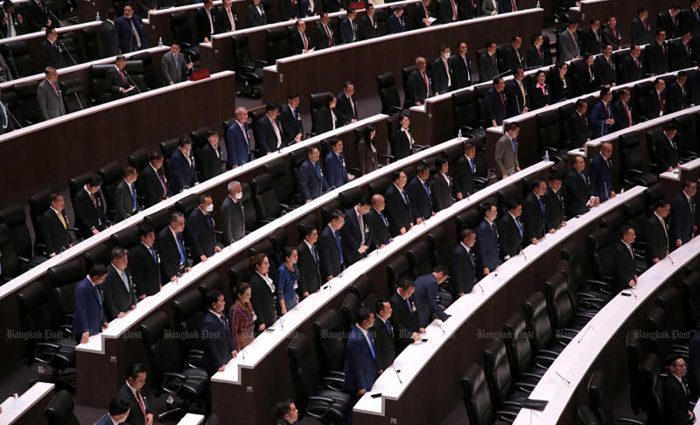
Military influence in South to decrease
PUBLISHED : 22 Feb 2024 at 05:46
The House of Representatives on Wednesday agreed in principle with three bills that aim to abolish orders issued by the now-defunct National Council for Peace and Order (NCPO).
The orders restrict public participation in the administration of the restive South while allowing way too much military influence in managing the administrative bodies in the southern border provinces, according to complaints from various political parties.
The three bills which were deliberated one after another and won approval in their first readings in the Lower House on Wednesday.
The bills were proposed by Yunaidee Waba, a Democrat Party MP for Pattani; Chusak Sirinil, Pheu Thai Party deputy leader; and Romadon Panjor, a list MP of the main opposition Move Forward Party.
At the end of Wednesday’s deliberation, the House voted 421-0 to approve the bills in their first reading. It agreed to form a House committee to vet them.
The three orders came under the 14th instruction of the NCPO which was issued in 2016. They have effectively led to the Southern Border Administration Act being rendered partially invalid.
The invalid sections disrupt the function of the advisory council of the Southern Border Administration and Development, which consists of members represented by residents in the far South.
Before the so-called “14th/2016 NCPO” orders were launched, the council had a key role in monitoring the work of the Southern Border Provinces Administration Centre (SBPAC), a key administrative agency, said Mr Yunaidee.
However, when the orders came, the NCPO appointed its own advisory committee to supervise the SBPAC, which was blamed for a drop in the SBPAC’s efficiency and the lack of public participation and input in the centre’s decision-making process, he said.
The NCPO’s advisory committee has also taken over from the council the duty of offering advice on southern border affairs to the prime minister and the SBPAC’s chief, he said.
The NCPO’s orders have also allowed the Internal Security Operation Command, a military organisation, to have influence over the SBPAC, a civilian-run agency, said Pheu Thai list-MP Chaturon Chaisang, in his capacity as chairman of the House special committee monitoring the government’s work to promote peace in the South.

